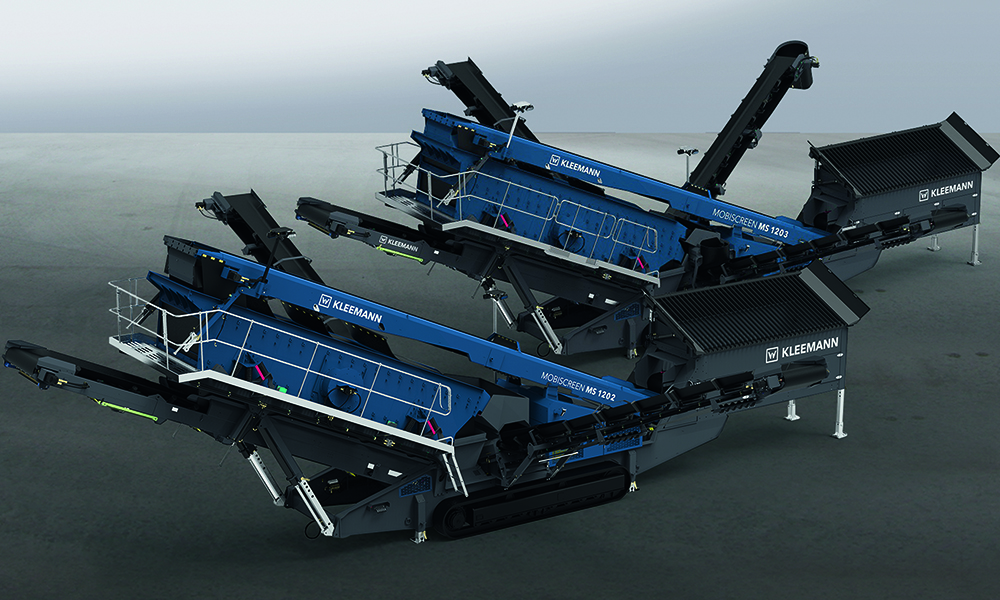Kleemann has introduced two new mobile classifying screens with feed capacities of up to 750t/h to cater for materials processing customers looking for effective screeners for large volumes of materials.
The company of the Wirtgen Group, which itself is now owned by John Deere, said the MOBISCREEN MS 1202 and MS 1203 are available with two or three screen decks and have screening surface areas of 12m² in the upper and middle deck and 11m² in the lower deck, making hourly outputs of up to 750t possible.
Describing the engineering that makes the high maximum outputs possible, Aiko Fischer, product manager for screening plants at Kleemann, said: “To achieve these high outputs, the material flow must be well designed. Kleemann has thus generously dimensioned the feed hopper with a holding volume of 10m³. This makes feeding both with a crushing plant as well as with a large wheel loader possible. Despite discontinuous feeding by the wheel loader, the large hopper volume ensures continuous material supply to the screen. Correspondingly wide feeding and discharge conveyors guarantee an unobstructed material flow over the screen. The high-torque diesel engine also ensures that the plant does not ‘run out of steam’.
“Apart from the pure performance data, we should not forget the most important thing: the adjustability of screening angle and amplitude to the different feed materials and their properties. Besides the selection of the suitable screen surface, the correct selection of these parameters ultimately decides the screening performance and product quality.”
Both screens can be combined with the crushing plants from the Kleemann EVO series as well as with the PRO series, Fischer added. “The smaller the separating cut and the higher the required final product amount, the larger the screening surface must be.”
As with other screening plants in the MOBISCREEN series, the MS 1202/MS 1203 are driven by powerful hydraulic power units. The Dual Power option also allows the screens to be driven by electric power only, which further increases the efficiency and reduces the load on the environment by decreased noise and exhaust emissions, added Kleemann.
The manufacturer says that for flexible application, it offers a large selection of screen surfaces with different mesh shapes – square, rectangular or harp-shaped – as well as the correct characteristic, for example steel or plastic.
“To ensure that this flexibility relates not only to the screen applications but also to the different job-sites, good transport properties and fast set-up and dismantling times are very important. This is also an advantage of the MS 1202/MS 1203 as one of the largest mobile screening plants in the world that can be transported in one piece,” said Kleemann’s statement.
